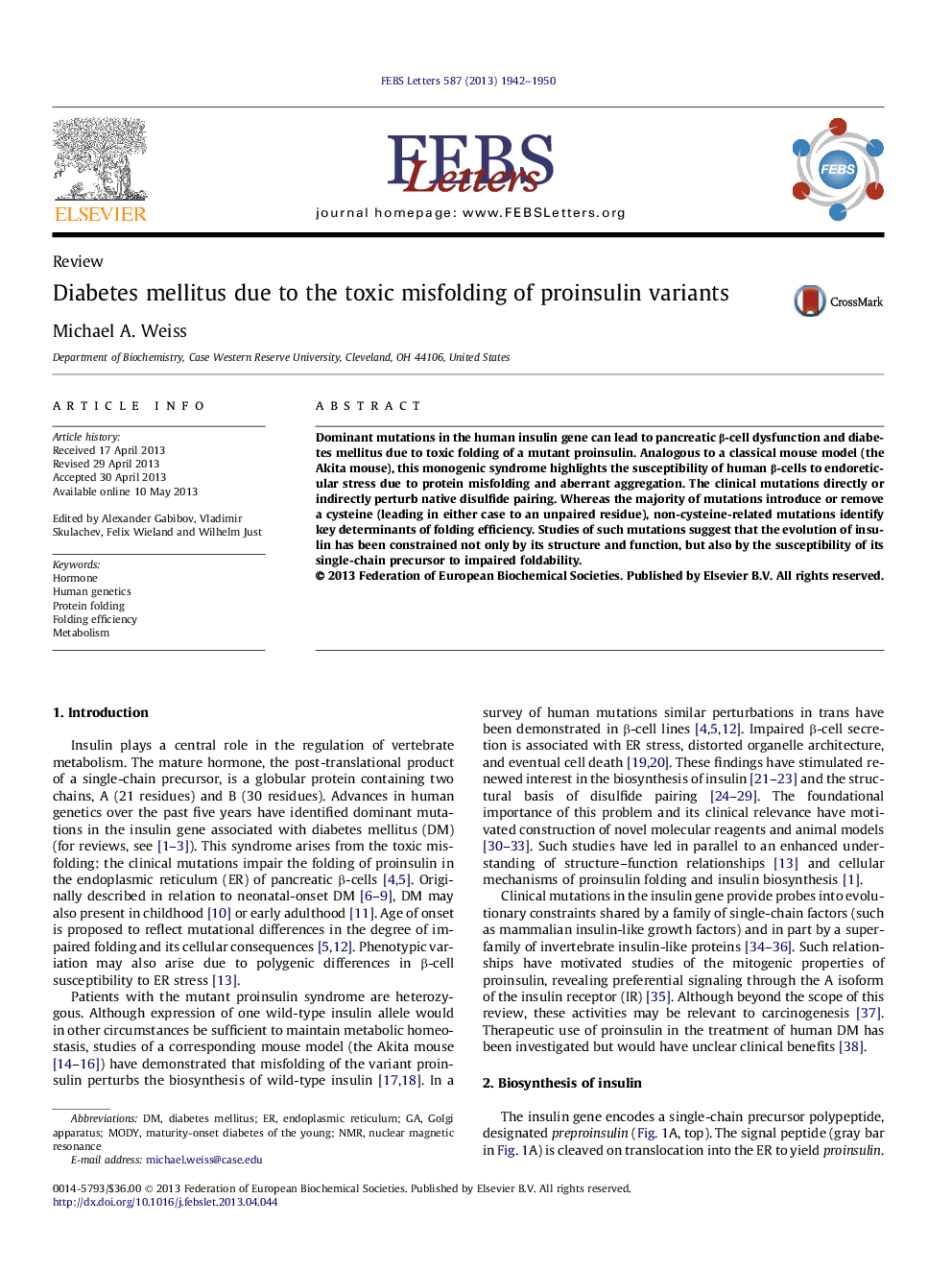| Article ID | Journal | Published Year | Pages | File Type |
|---|---|---|---|---|
| 10871342 | FEBS Letters | 2013 | 9 Pages |
Abstract
Dominant mutations in the human insulin gene can lead to pancreatic β-cell dysfunction and diabetes mellitus due to toxic folding of a mutant proinsulin. Analogous to a classical mouse model (the Akita mouse), this monogenic syndrome highlights the susceptibility of human β-cells to endoreticular stress due to protein misfolding and aberrant aggregation. The clinical mutations directly or indirectly perturb native disulfide pairing. Whereas the majority of mutations introduce or remove a cysteine (leading in either case to an unpaired residue), non-cysteine-related mutations identify key determinants of folding efficiency. Studies of such mutations suggest that the evolution of insulin has been constrained not only by its structure and function, but also by the susceptibility of its single-chain precursor to impaired foldability.
Keywords
Related Topics
Life Sciences
Agricultural and Biological Sciences
Plant Science
Authors
Michael A. Weiss,
